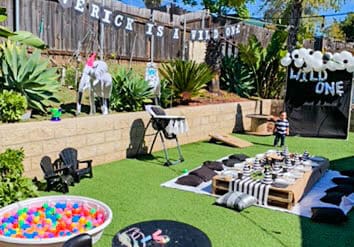Joyful Tidings: A Parents’ Guide to Christmas Carols
Hello, festive friends and yuletide enthusiasts! With twinkling lights adorning the streets and the scent of gingerbread lingering in the air, we know that the most wonderful time of the year is upon us. And what’s more heartwarming than the sound of Christmas carols softly echoing through the frosty air?
If you’re looking to introduce your little ones to the beauty and joy of caroling, or perhaps you’re searching for ways to make Christmas carols a bigger part of your family traditions, you’ve come to the right place! Let’s embark on a magical journey together, exploring the enchanting world of Christmas carols and creating memories that will last a lifetime.
Unwrapping The History Behind Christmas Carols
Before we dive into the melodies and chimes, let’s take a sleigh ride back in time to understand the origins of Christmas carols. Originally, “carol” referred to a round dance with singing, rooted in pagan traditions celebrating the seasons. However, as Christianity spread, these musical expressions were adapted to tell the story of Jesus’ birth. Now, caroling is a treasured holiday ritual that adds sparkle to the festive season across the globe.
Why Christmas Carols Matter: Beyond The Notes
Christmas carols are more than just delightful tunes; they are a tapestry of culture, history, and emotion. They are a way for families to connect, to share joy, and to spread cheer to neighbors and friends. In a world where digital connections often overshadow personal ones, caroling stands out as a beacon of genuine human interaction and togetherness—values that are too precious not to share with your children.
Choosing The Perfect Carols for Your Family
With so many enchanting melodies to choose from, selecting the right carols to sing with your children can feel as daunting as picking the perfect present for Santa himself! But fret not, for here we shall unveil some of the loveliest carols and their stories, helping you curate a playlist that resonates with the spirit of your family’s Christmas.
Teaching Carols to Children: A Step-by-Step Approach
Teaching your kids Christmas carols can be a joyful experience not only for them but also for you. It’s an opportunity to engage with them musically, linguistically, and even historically! To make this process smoother, we’ll delve into some effective methods to help even the littlest of carolers learn their falalalas and jingle bells. Stay tuned for delightful tips and tricks!
Creating New Caroling Traditions for Your Family
Traditions are the ornaments on the Christmas tree of life, sparkling with nostalgia and newness all at once. Whether you want to dust off the old caroling rituals or start fresh ones tailored to your family’s unique dynamic, we’re here to help you craft those special moments. Let’s explore innovative ways to make caroling a beloved and eagerly anticipated tradition in your household.
Carol in Comfort: Ensuring Safety and Warmth
No one wants a bout of the sniffles to dampen the holiday cheer, so we’ll also cover practical advice to ensure that your family’s caroling expedition is as cozy and safe as can be. From warm cocoa to harmonizing under the glow of street lamps, your caroling adventure should be nothing short of magical—while keeping Jack Frost at bay.
Conclusion
As you prepare to immerse your family in the joyous tradition of Christmas carols, remember that it’s the love and laughter shared that will truly make these melodies sing. So grab your hats and scarves, gather your loved ones, and let the caroling begin! Stay with us as we bring more sparkle and song to your festive preparations!

“`html
Five Things Parents Should Know When Preparing for Carols at Christmas
- Selection of Carols: Consider the age and interests of your children when choosing your caroling repertoire. Opt for carols that are simple and repetitive for younger children, such as “Jingle Bells” or “Rudolph the Red-Nosed Reindeer,” which can be memorized easily and are fun to sing. For older kids, carols that tell a story or have meaningful lyrics, like “Silent Night” or “O Holy Night,” might be more engaging.
- Practice Sessions: Schedule regular practice times leading up to your caroling. This helps children feel confident and excited about their performance. Make it a special time by creating a warm atmosphere with hot chocolate and cookies, turning it into a lovely pre-Christmas tradition.
- Dress Rehearsal: A day or two before your caroling event, have a dress rehearsal at home. Let the kids dress up and perform the carols as if they were in front of an audience. This allows them to experience what it’s like to sing in their festive clothes and can help resolve any last-minute jitters.
- Lyric Sheets and Caroling Books: For impromptu singing or to aid memory, prepare lyric sheets or booklets for your family to use. This ensures that everyone can join in, even if they haven’t memorized all the verses. You can make this a creative activity as well, by having your children help decorate the caroling books.
- Community Involvement: Finally, involve your community! Caroling can be an incredible way to connect with neighbors and spread holiday cheer. You may even want to team up with other families or invite friends to join in. If possible, plan your route to include stops at local senior centers, hospitals, or homes where residents may particularly appreciate the festive spirit.
“`
This structured list provides parents with a simple yet comprehensive guide to include in their preparations for caroling, ensuring that the experience is fun, organized, and rewarding for the whole family.
For more great articles please see here. For more information see here
Disclaimer
The articles available via our website provide general information only and we strongly urge readers to exercise caution and conduct their own thorough research and fact-checking. The information presented should not be taken as absolute truth, and, to the maximum extent permitted by law, we will not be held liable for any inaccuracies or errors in the content. It is essential for individuals to independently verify and validate the information before making any decisions or taking any actions based on the articles.




